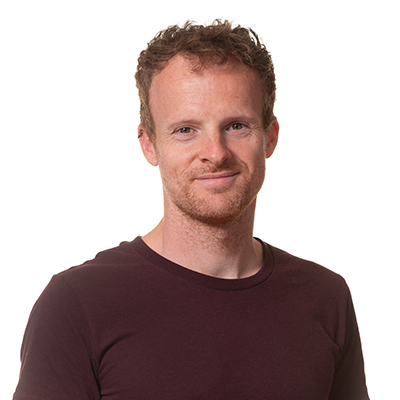Recommended summer reads '19
Almost all of the recommended books can be bought at Academic Books for a discount price for CBS alumni. Read about the Academic Books offer and how you obtain your alumni discount
 |
Helle Zinner, Head of the Department of Digitalization Associate Professor Helle Zinner recently took on the position as Head of the Department of Digitalization. As regards her research, Helle focuses on IT in the public sector. Her research focuses on gains of IT-uptake in a broader sense where benefits of IT do not necessarily relate to monetary gains. |
Seven-hundred pages about data and how it shapes our daily life to an uncomfortable extent might sound like an unattractive suggestion. The book “The Age of Surveillance Capitalism: The Fight for a Human Future at the New Frontier of Power” by Shoshana Zuboff does, however, guide us to understand how some of the largest corporations, which we generate data for in our daily activities, completely change us as consumers, individuals, and employees. It is a voluminous book full of examples, which forces you to stop and think about the experiment we are part of living in times of social media, Internet of Things, and advanced techniques for data analysis.
Yuval Noah Harari: ‘Sapiens: A Brief History of Humankind’ (2015)
If you have not yet read ‘Sapiens,’ then this is a must. Yuval is a gifted writer. Even though the genre is non-fiction it almost reads like a novel. Yuval introduces three concepts: imagination, money, and religion, which he argues made homo sapiens the dominant species on planet Earth in a period of 100,000 years. The book takes the reader on a journey from when we lived in caves to our life in modern civilizations. It is particularly inspiring to read and contemplate on how imagination plays a central role in daily life. Yuval points to how subtle signals and symbols, along with organizations, all are examples of how imagination is the cohesive force of social relations today.
Hans Rösling: ‘Factfulness: Ten Reasons We're Wrong About the World – and Why Things Are Better Than You Think’ (2018)
‘Factfulness’ by Hans Rösling is one of the few contemporary books that delivers a positive message about the progress and prosperity of humanity. The book is based on the very creative talks on statistics and numbers given by Hans Rösling, which have been broadcasted and seen by millions of people (for example the explanation of the scope of the refugee crisis illustrated by apples shown in the Danish DR Deadline TV show in 2015). The book argues that there are improved health and living conditions for the majority of the world’s population, contrary to what is often portrayed in media. When reading the book, I was confronted with my lack of knowledge and misconception of facts through the small quizzes at the end of each chapter.
 |
Dan Käremann, Professor, Department of Management, Society and Communication Professor Dan Käremann’s research focuses on topics like critical management studies, knowledge work, identity in organizations, leadership, organizational control, innovation, and research methodology. |
David Wallace-Wells: ‘The uninhabitable earth – Life after warming’ (2019)
It is worse than you imagine, even if you imagine the worst. That is the nickel summary of this book. I wish it was science fiction but it is not. Basically, Wallace-Wells, a journalist who has covered the climate change beat for a long time, decided to write a book that does not try to soft-pedal the effects of climate change, but rather take on the scientific consensus head on. This turns out to be an illuminating but also complicated task. It is illuminating because you can see the enormous scale of catastrophic change that is already baked in - we are adding greenhouse gasses to the atmosphere at a scale only seen at extermination events, and half of this have been added since climatologists first ringed the alarm in late 1980. It is complicated because the models are in flux and the feedback loops are poorly understood (at the moment, it looks like the model has underestimated the consequences of positive feedback loops, which is not good news, to put it mildly. If you are a climate skeptic, this book will not change your mind (probably nothing will, by now). If you worry about climate change, Wallace-Wells gives you plenty to worry about, but also tools to think about it in imaginative and, dare I say it, productive ways.
Robert Gerwarth: “The Vanquished: Why the First World War failed to End, 1917-1923” (2016)
In the history books, and for the victors, the First World War ended on the eleventh hour of the eleventh day in the eleventh month of 1918. For the vanquished, it probably did not end until 1923, and in many ways it did not end until the end of the Second World War. That is the thesis of this book. The book catalogues the many civil wars, revolutions and counter-revolutions, persistent conflicts, upheavals, and general unrest that followed the cease-fire in the countries that ended up on the losing side of the Great War. It also manages to make this a compelling read that, among other things, gives a well-rounded understanding of why the strongly-felt and shared hostility between Turkey and Greece is unlikely to end soon, why Hungary always is going to have a complicated place in contemporary Europe, and why the idea of EU as a peace project is so deeply rooted in continental Europe.
Peter Heather: “The Fall of the Roman Empire” (2006)
My last book tip looks further backwards into the collapse of the Roman Empire. This book attempts to move beyond lead-lined aqueducts and degeneration as explanations for the fall of the western part of Rome. One of the more interesting aspects of the book is that Heather argues that modern scholarship suggests that there is much more continuation between Romans and ‘barbarians’ than what laypeople have been led to think. However, western Rome did fall (although not in 474, that is just an arbitrary date accepted for conventional reasons – the fall either happened before or after that year) and Heather suggests a compelling reason for it. Basically, Rome was undone by the combined pressure of large scale forced migration (driven by the Hun invasion) and an eroded tax base, which eventually revolted against the cost of empire. You do get the feeling that the fall of Rome wasn’t a foregone conclusion – indeed, Heather strongly suggests that with better governance and more imaginative rulers, Rome might have lasted much longer. Heather’s thesis has the benefit of an existing counter-factual. Eastern Rome, in the shape of the Byzantine Empire, did after all last almost another 1000 years.
 |
Thomas Burø, PhD fellow, Department of Organization PhD fellow Thomas Burø’s research is inquiring into the ways in which political economy, cultural politics, identity, the pragmatics of aesthetic practice, and the patterns of cultural use effectively shape and reshape, regulate, and organize arts and cultural organizations. |
George Perec: “Life: A User’s Manual” (1978)
He wrote strange books, Perec. For instance, the crime novel “La Disparation” where the letter ’e’ has disappeared and is missing in the text, or “A Man Asleep” which meditates on the process of falling asleep. “Life: A User’s Manual” is a story about a building in the XVII arrondissement in Paris on June 23, 1975, shortly before 8 pm, at which time the main character Bartlebooth has just died. The book is structured as a mapping of each room in the building, which allows Perec to weave a complex narrative about lives lived in all their granular detail: all the quiet horrors, the failures, the let downs, the loves, and hopes and dreams and joys. Ultimately, it is a book that examines the question how should one live? by examining how one could live.
There are books that move you and there are books that are ”interesting” (read: conceptually strong experiments in form, but boring reading experiences). Initially, I thought “Life” was going to be such a book. But once the story starts to take a hold on you, and it does, in a slow and meticulous manner, you can’t stop reading. It is funny, surprising, wildly intelligent and extremely well-crafted literature, but most of all, it is moving.
Howard Zinn: “A People’s History of the United States” (latest edition from 2005)
The historian Howard Zinn took up the task of writing a history of the US from the perspective of the ones whose perspective is rarely taken in grand narratives of Nation and State: people’s. Indians, African slaves, anarchists, workers, women, queers, poor folks, social movements: how different USA as a society and a nation state looks when seen from these perspectives. If it is even possible to summarise such complex histories, then a people’s history is one marked by struggle. Both struggles for rights, justice, recognition, safety, and self-determination, and struggles against exploitation, social injustice, racism, sexism, and other forms of state and capitalist violence.
It is a thrilling read. More often than not I would find myself totally overwhelmed with how amazing people can be. It is said that the book presents a pessimistic view on the USA and this is true. However, Zinn’s narrative is also infused with an optimistic tone and a belief in the power of people’s collective, organised power. This book is a grand narrative told from a minoritarian perspective. I read it while touring the US with my punk band in the months following September 11th, tucked in at the back of the van, thinking, wondering, marvelling.
Franz Fanon: “Black Skin, White Masks” (1952)
This book should be mandatory reading. It is great literature and it might expand your horizon. Black Skin, White Masks is a psychological study of the psychopathology of colonization, of the psychic life of colonised people, and the core argument, as the title suggests, is that living under colonial conditions has a particular effect on the self-image and self-worth of the colonised: the colonised come to see themselves as beings of lesser worth than the coloniser, because they learn to see themselves as the coloniser sees them. The solution: become white.
Fanon was from the French colony Martinique, he had first-hand knowledge with life under the Manicheism of colonization. Fanon would become involved with the anti-colonial struggle in Algeria and in his (in)famous “Wretched of the Earth” he would come to advocate for violence as a necessary condition for colonised people to liberate themselves. It is safe to say he was a politically radical thinker.
The prose of Black Skin, White Masks is forceful. From the very opening paragraph. If you want to understand the mechanics of racism, this is a good place to start.